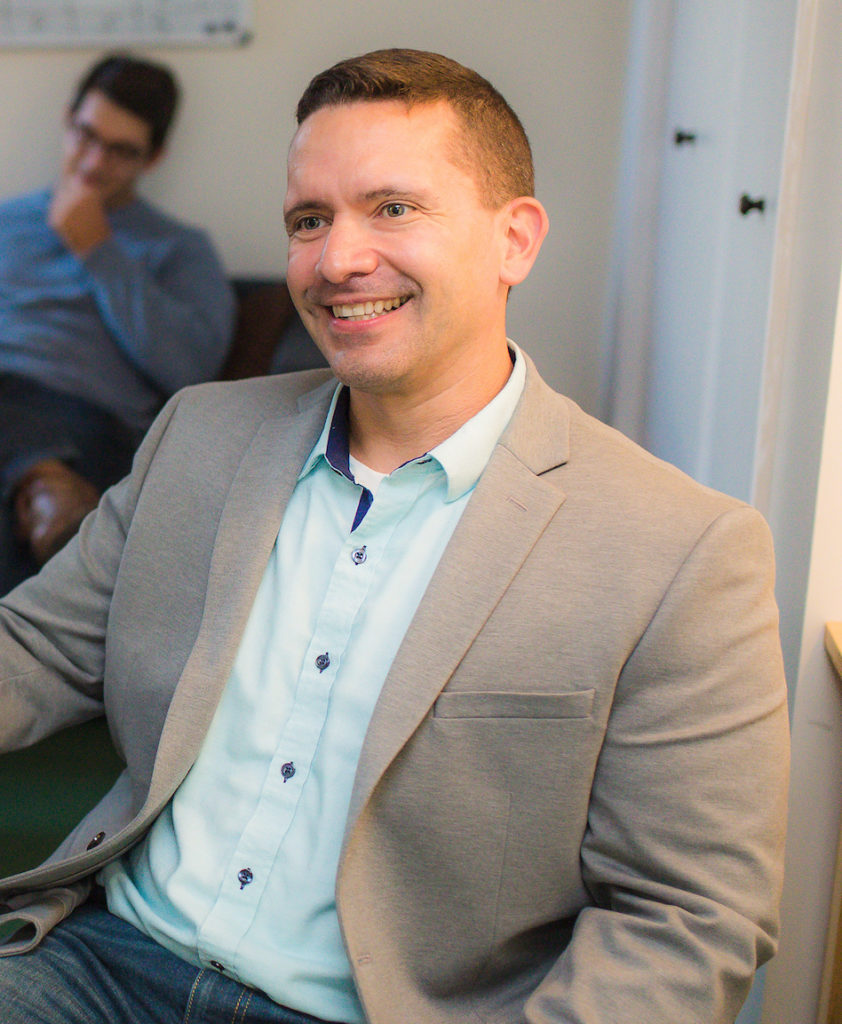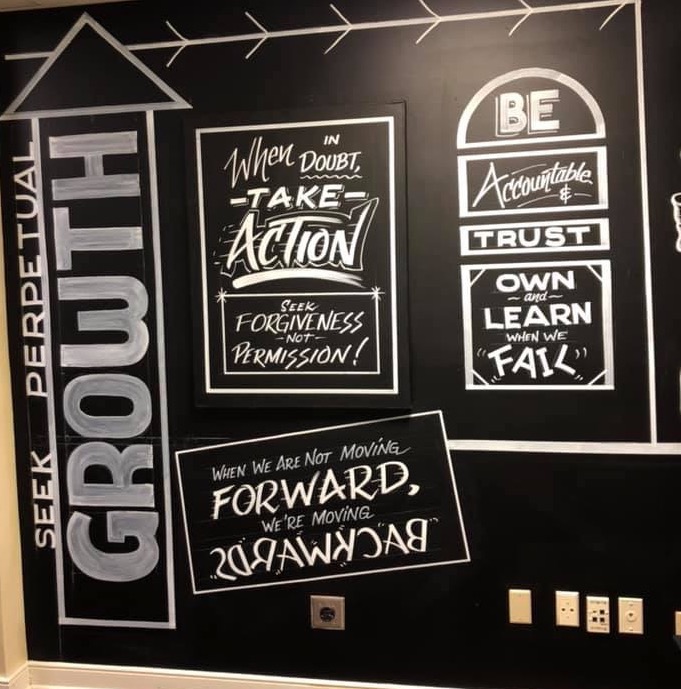
We recently sat down with Bill Balderaz, President and Founder, of Futurety located in Columbus, Ohio. Bill is well known in the startup community and is a regular on the speaker circuit at conferences ranging from New York to California. Bill has started multiple companies and he has been a pioneer in the digital marketing space paving the way for how things will be done for years to come. We spoke to Bill to learn more about how he has built such successful companies and how he continues to stay at the top of his game in such a competitive space.
1. What gave you the idea to start Futurety?
I was in between jobs as they say, I guess euphemistically, but I had a couple agencies in the past and I sold one. I went into a joint venture with another and sold my equity in that. And then I was trying to find the next thing. I went out and met with a lot of previous clients from my past life and I asked “What is something that you would pay for, something you would write me a check for today?”
Almost universally, they all said “We have a lot of data, it’s in silos, it doesn’t talk to each other and we don’t know how to use it.”
That sounded like a business to me. I’m the guy that took statistics pass/fail in college so I knew nothing about this but I went out and found some really smart, talented data, analytics and math people to start working with. For the first few years it really was just me, some grad students and a small office taking on projects on a case-by-case basis. But, it quickly grew and then over the last two years it has grown exponentially. We have a team of about 11 folks now and most of the folks are data scientists, analysts and mathematicians.
2. What are the biggest marketing trends affecting Futurety?
I think the shift that I’ve seen, and the reason I started shifting away from a more creative agency model, is that there’s this drive towards data. I cringe when I say that because every agency that you call and every agency’s website will say “we’re data driven”.
I think the definition of data sometimes means there’s one Google Analytics person that does monthly reports for the account managers and in our world, that’s not data driven. We position ourselves as a data analytics agency first. We just happen to do marketing as an output of that work. I think the thing that really excites me is for years you would run a bunch of ads, put them in an excel spreadsheet, assume some of the results, rank them and have more creative people tweak the ads.
The whole process could take weeks or months to do. When you apply more data analytics, machine learning and AI to marketing you can do it in near real time or even predict, based on this model, if a person will or will not download an app, for example, and if the person downloads it the model is rewarded. If they don’t download it then the model is corrected. So what I believe is we can do marketing by serving more clients more effectively than I think you can without using data. You have happier clients, get better results and you have a team that gets really excited. So the short answer is the best thing is the use of true data and data modeling to support marketing.
3. What are the most important characteristics you look for when hiring?
We have our core values very promptly displayed on our wall in the office. That’s hiring, promoting, everything we do really comes back to those. My own personal mantra is this idea of relentless forward momentum. You don’t look backwards; we’re not going that way.
Who is someone that is always looking forward and pushing and doesn’t let obstacles get in their way? We look for people that are always growing. I love, in interviews, to hear when people read a lot,

listen to podcasts, who are going to conferences, busy networking and developing their skill set. One thing I look for is if people say I don’t have time for professional development and I’m like, “what did you think of the latest Game of Thrones episode?” and they can tell me about it. If you have time to watch the latest Game of Thrones episode then you have time to read a book or listen to a podcast. There’s always time to keep developing. And if developing isn’t for you, that doesn’t mean you’re a bad person. It just means you’re not a good fit here. You should watch Game of Thrones and that’s okay.
We look for people that like to take risks and we are inherently a start up. Even in 20 years from now we’ll still behave like a start up. What we do is high risk and we want people that are comfortable with that. We need more of those people that every day is an adventure and are always looking for something new.
The idea of understanding your influence is probably, of all these values, the one most important to me. If someone walks in the door and interviews and says I was at this company for 10 years and the first 5 years we grew and doubled revenue and we won all these clients and the second 5 years it went all bad. If they take credit for the good years but not the bad years, then my opinion is that if your influence is strong enough to influence the good years, it should be strong enough to influence the bad years.
Whether you are at a two-person company or a 100-person company, I love someone who is accountable. If I said, “Why did you lose that big national account?” and if they say, “It’s because the old VP left who I had a great relationship with, and the new VP hired his nephew’s company,” that’s a bad answer. What I want to hear is that when the old VP left, “I didn’t have the foresight to build deeper relationships within the company so that we would maintain that contract.”
Take a market crash like the 08 recession, if they say, “It was the 08 recession and our business failed.” What I want to hear is that, “ It was the 08 recession and we didn’t have a rainy day fund. We didn’t have a back up plan. We didn’t pivot in time.”
I was raised in a working class, Catholic, Gen X, blue collar, Midwestern environment where you kind of owned everything and kind of have that sense of inherent Catholic guilt a little bit which can be a good thing because it means accountability. When bad things happen, it is my fault or there is something I could have done to influence it and we’re not victims of the stock market, government or our clients. We are dealing with the federal budget and a lot of our clients are federally funded and we can’t influence whether or not the President and Congress pass a budget that is conducive to the arts, transportation or some of the industries we work in. But we can influence if we are diverse in the industries we work in.
4. How do you keep your team members motivated?
First of all, everyone gets to participate in the success of the company. So we do have bonus and commission programs where when the company does well, they do well. We are small enough that we believe every single person influences our revenue and profitability and if they don’t believe that, they are not the right person for the place. Everyone shares in the success of the company. We also create a very family like environment, many of our employees said our office feels more like a house. We have a kitchen and the offices people sit in almost feel more like their rooms.
We eat together. We do volunteer work together. We also have a pretty big focus on making a social impact. We are not a nonprofit or a B-corp but we really are motivated by clients that are working on solving issues like malnutrition, mobility, health and equity, and the arts. We look for things where we believe we can make a societal impact using our skills. Now if someone comes to us and they want to sell landscaping, roofing or cars, we’ll still do that and we’ll do it well but there’s a focus and a pride with a lot of the work we do where we feel we can make a social impact as well.
5. What is your favorite interview question and why?
Ok. So I was just asked this in a media interview, not a job interview, but it will work either way. And that was, what is the one thing you are right about that everyone else disagrees with you on. And I love that because I think we all have that thing. It’s like you kind of walk through life sometimes when you are mowing your grass with your shorts on and you are like, I know I’m right about this and no one else gets it. I think it tells you so much about a person. It might be that they are very stubborn and just holding on to a really dumb idea or they are really brilliant and have something unique. For most of us, it’s probably somewhere in between. Someone asked me that and I was like I love that question and I’m going to use that. So what’s the one thing you are right about that everyone else is wrong about?
6. What is the biggest risk you’ve ever taken?
Starting Webbed Marketing, the first business I had, back in 06. I was in my very early 30’s. We had one son and a daughter on the way. We were like a lot of people at that age. We had a mortgage. We just bought our second house. It wasn’t the starter house. It was a bigger house. In fact, it was a mini farm. So we had a big house with a big barn and we had horses and my wife wasn’t working at the time. She had taken some time off with the kids. We had a nest egg and we had some money saved up but I was leaving a job where I was making just an incredibly great salary at a tech firm. I was super good friends with the CEO and she is one of my best friends to this day. I was on a great trajectory there. And I left. And so here suddenly I had to make a house payment, two car payments, two kids and no other income. It was a giant risk but a calculated risk. Before I started, I went to my current employer and 3 or 4 other friends and said if I start this business, will you pay me to do the work. So it was a calculated risk but in terms of walking away from a great job in your prime earning years when you were the sole income, it would be that.
7. What is the best piece of advice you’ve ever received?I
I’ve said it before but I think if you ask anyone in Columbus who the top 10 CEO’s are, that list would probably have Carol Clark, Pam Springer and Mike Morgan on it. I think I’m the only one in Columbus who has worked for all three of them. Their voices are in my head all the time with good advice, so it’s hard to pick just one who has given me the best piece of advice. But one piece of advice I say a lot and truly believe came from Pam: t, is If you are the smartest person in the room, you are in the wrong room. I have found, even here, I am probably 20 years older and several IQ points lower than most of the people I work with and that’s a great thing. I think there’s a couple sides to that. One, you have the confidence to hire people smarter than you. You have to say, this person is smarter than me rather than, I’m the boss or CEO so I can’t have that. You’ve got to embrace that and be really excited about that.
The other thing is the hidden message in if you think you are the smartest person in the room, you might not be super self-aware. If you get a room of 10 people together and they all think they are the smartest person in the room, there is probably some ego and self awareness issues going on there. I think it’s the Dunning and Kruger Effect psychologists talk about where if you have one guitar lesson and you learn 3 chords and you can play “Sweet Home Alabama”, you say you can play guitar. Then after a year you say, I’m really not that good and then after 30 years you say, I’m really not good at all.
I remember a great quote when Rolling Stone asked Eric Clapton what’s it like to be the greatest living guitarist in the world and he said “I don’t know, go ask Prince.” Once you’re really really good at something, you realize how good you’re not. I think when you’ve been doing something for a year or two and you think you are really great at something, you’re probably not. When you first start something you don’t know the mistakes you’re making and you don’t know how good you’re not. So two sides to that. If you are the smartest person in the room, you’re in the wrong room. One, hire really smart people. Two, be self aware enough that you should always be telling yourself there’s something else I can learn, there’s some other ways I can be better.
